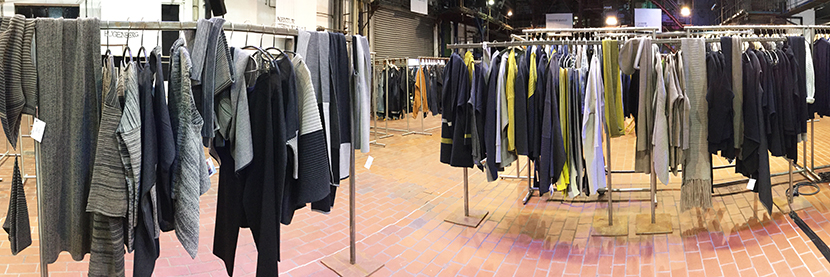The Polyester Problem
The recycling of PET bottles is criticised as greenwashing.
Even the production of polyester is an environmental sin.
The extraction of synthetic substances is undoubtedly an energy-intensive process that requires a lot of crude oil and releases emissions. "These include volatile organic compounds, particulate matter and acid gases such as hydrogen chloride, which cause respiratory illnesses. Monomers, solvents and other by-products of polyester production are emitted into wastewater from manufacturing plants," explains the US Environmental Protection Agency (EPA). This means that textile manufacturing plants are once again "generators of hazardous waste", according to the Environmental Health Perspectives platform.
Polyester is the most widely used synthetic fibre.
The Amsterdam-based sustainability initiative Fashion for Good analysed 21.8 tonnes of textile waste in six European countries as part of the "Sorting for Circularity Europe" project. According to this, every tenth item consists of polyester and almost a third of material mixtures, of which the mixture of cotton and polyester, which still cannot be separated in large quantities to cover costs, accounts for half.
Fibre blends with polyester are just a nuisance factor.
The main problem is that there is still no fibre-to-fibre recycling. Recycled polyester would only be truly sustainable if it came from old textiles, but there is no infrastructure and no take-back systems for old clothes, confirms Thomas Ahlmann of Fairwertung, the umbrella organisation of textile recyclers. Today, polyester is made exclusively from plastic bottles, because new production is still more profitable than recycling.
The share of fibre-to-fibre recycling is still below 1%.
"Anyone who sells recycled polyester as a sustainable solution is misleading their customers," says Ahlmann. Lavina Muth is even more explicit: "This is simply greenwashing," says the sustainability expert from Cologne. "It's trendy right now because it can be easily and cheaply labelled as "supposedly green". What is clear is that PET bottles are best left in their closed cycle as PET bottles.
In addition, there are rumours that have been circulating for years that plastic bottles are being produced in China so that they can be recycled into textile fibres. There is already enough plastic in the world.
Last, but not least: the fibre drive. The microplastic problem.
Microplastics are produced not only during production, but probably even more so during wearing and washing. Fox has found that certain weaving techniques and coatings reduce the danger. As long as it's not fleece, the waste is limited," he says. For example, a backpack that is not washed and not worn directly on the skin is less of a concern than a shirt." But the facts are still too thin overall. Nets and filters for waxing machines are currently being experimented with.
Conclusion of the experts:
In the longer term, polyester must be completely replaced by another fibre, because the resource-intensive extraction of the raw material and the problems with microplastics and residual waste cannot be solved in any other way.
———
Source: Textilwirtschaft, Sustainability - Greenwashing

